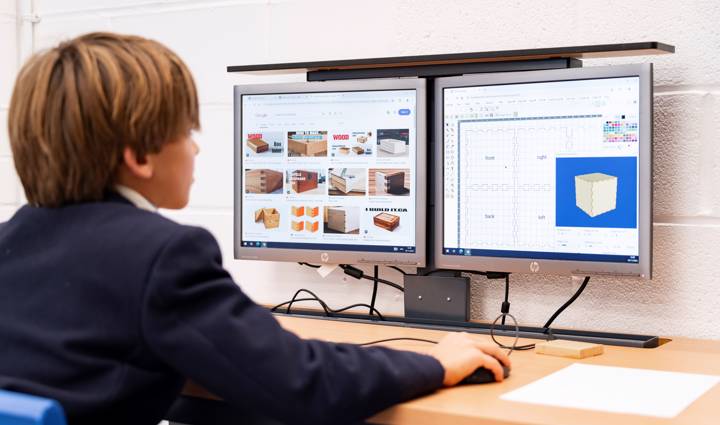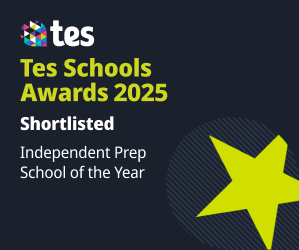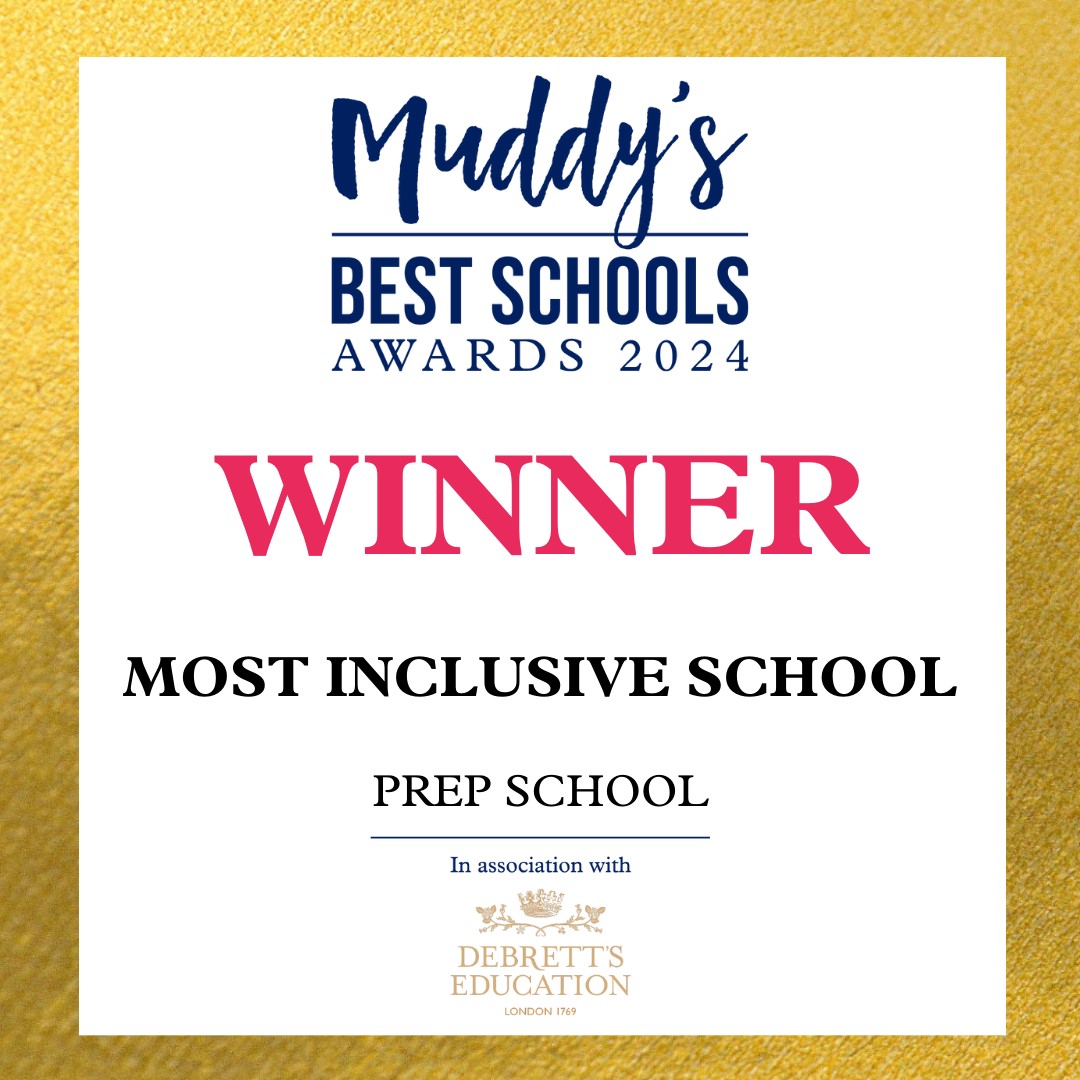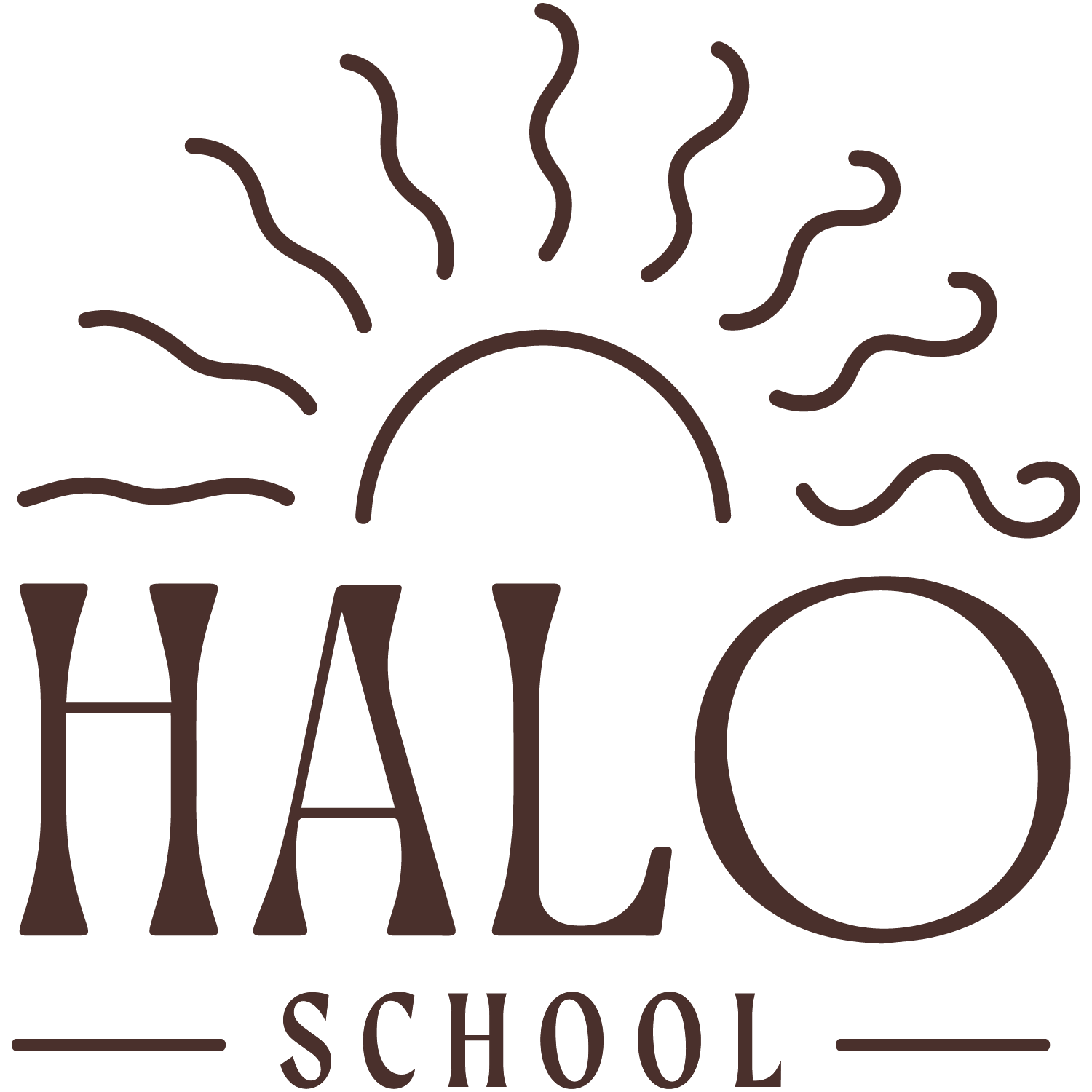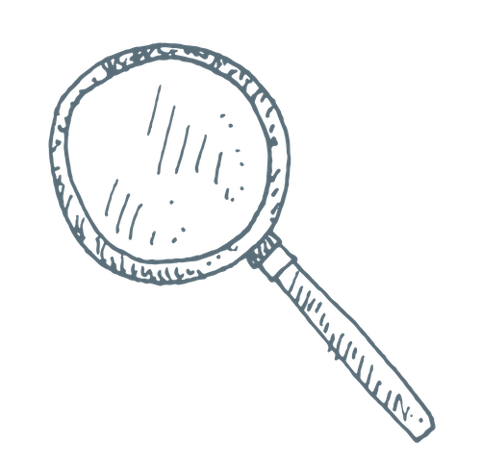
STEM
STEM, or increasingly STEAM (Science, Technology, Engineering, ART & Maths), is a strong and coordinated part of the curriculum. Our would-be engineers are inspired to ask questions such as ‘Why can’t we split car emissions into diamonds and oxygen?’ or ‘Why can’t we clean the oceans by fitting powerful magnets to ships?’. And they love events that involve the outside world such as when we had a live online chat with a Facebook engineer or got heavily involved in supporting British Science Week.
The STEM subjects help us understand how the world we live in really works. It’s a huge, relevant, inspiring and all-encompassing subject. Walhampton’s young thinkers all think it’s great.
SCIENCE – FASCINATING, FABULOUS AND FUN
If it moves, it’s biology; if it smells, it’s chemistry; and if you can’t see it, it’s probably physics.
And all together, it’s science!
Part of our STEM programme, science is a fabulous subject for children and not just because we have the best ‘toys’ in the school. Walhampton makes science fun as well as fascinating.
With different concepts and techniques to master, lessons involve lots of practical work to help develop experimental and thinking skills. Children are naturally inquisitive, so we don’t need to ‘blind them with science’ – just putting on a lab coat instantly gets them in the right frame of mind.
Pupils soon learn that science is not the mystery it’s often portrayed as. Most of us have a natural affinity with biology because we are so familiar with living things – not least ourselves and our pets. Chemistry is more about materials and their patterns of behaviour, whilst Physics often involves investigating invisible forces and can largely overlap with maths.
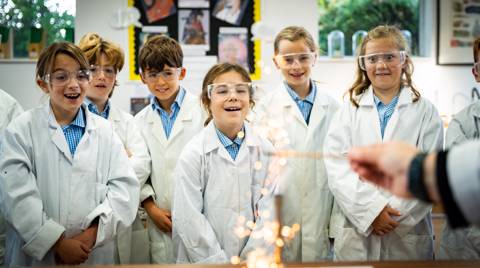
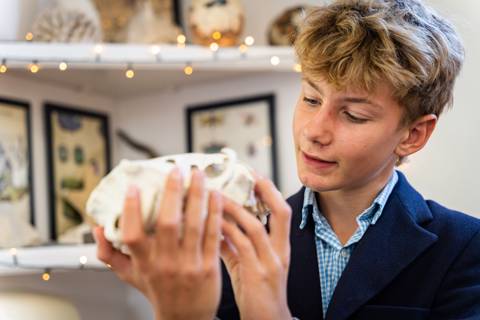
HANDS ON LEARNING
The teaching of all three subjects involves creating opportunities for pupils to ‘see for themselves’. Pupils get excited about thinking like scientists and the anticipation is high as they press inflated balloons onto a petri dish studded with drawing pins or walk on eggshells to demonstrate pressure. Similarly, it’s great to see that ‘Eureka!’ moment as they work out what’s going on when they connect the ‘easy route’ in a short-circuit.
There is so much to explore in science that it often spills over from lessons into a very popular after-school activity: Crazy Science. Here children use ‘neutralisation’ to inflate King Kong’s hand; or watch with bated breath as a hard-boiled egg defies its dimensions and slowly slides into a conical flask. For many, best of all is (briefly and safely) holding flaming methane bubbles on their hands. Even the faintest hearted pupils bravely give it a go.
SCIENCE AND THE ENVIRONMENT
Science, above all is a practical subject and it helps inform many of our children’s current interests. This is especially true of ones that they care fervently about, such as their growing awareness of the eco issues facing our planet. So, when we drop compostable waste into the centre of the keyhole garden, we can see nutrient recycling in action and appreciate how efficient systems like this are vital in countries like Africa where resources are scarce.
We also see pupils demonstrate their passion through involvement in many eco projects, including:
- Encouraging the school family to collect enough plastic stuffed eco-bricks to make a sofa.
- Growing our own fresh crops in the kitchen garden (of course our very own Hungry Caterpillars weren’t allowed near them!).
- Putting on a demonstration to the school community to express their concern over the climate crisis.
- Collecting rubbish (pens, crisp packets, plastic lids and stamps) to support ‘Send a Cow’, Mencap and RNIB charities.
- Fundraising for international and local charities including a school in Cambodia, Southampton’s Children’s Hospital, Royal Air Ambulance and the Worldwide Veterinary Service.
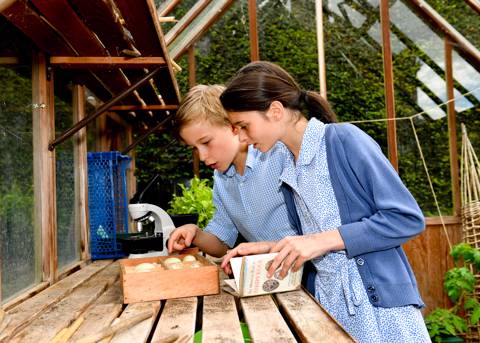
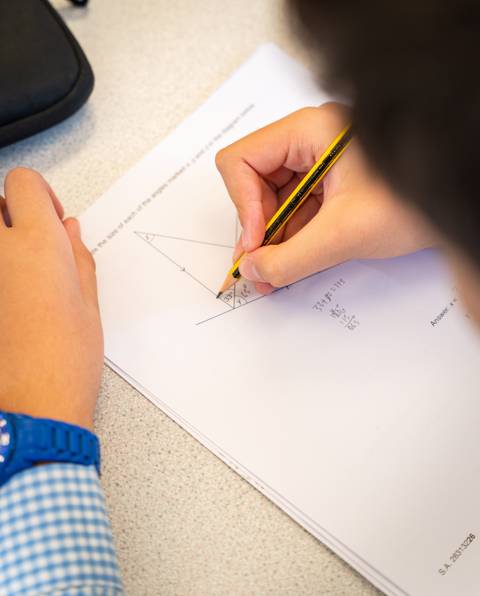
MATHS
Mathematics at Walhampton starts with the tiny seeds of understanding numbers and grows to the great oaks of advanced understanding, ready for the transition to secondary school. We believe all children should enjoy developing fluency, solving problems and applying mathematics to the wider world. Our children are taught through our use of practical resources and technology throughout the school, as well as traditional paper and pencil methods. The inspiring team: the class teachers from Reception to Year 4 and specialist teachers beyond, create an environment where children push themselves, are supported when necessary, but always strive for great things.
ICT
Having started computing lessons in the Pre-Prep, the Computing curriculum in the Prep school is aimed at developing digital literacy and an understanding of an array of digital devices. This is done through an introduction to programming, simulation, animation, website design, robotics, digital imagery and graphics editing, along with more traditional areas of IT, such as presentation, text and data handling. In Years 7 and 8, pupils explore topics which support the GCSE curriculum such as cryptography, artificial intelligence and coding with Python.
Online safety is also an integral part of our curriculum and we promote an emphasis on developing an awareness of e-safety both within school and at home.
The school has a fully-equipped computer suite, along with computer banks of chromebooks. Pupils are encouraged to use them in lessons and less formally in other school time. All classrooms have interactive displays that are used by staff to enhance their lessons to create a stimulating learning experience.
Please visit our department page at Walhampton Pupils to discover more: https://computing.walhampton.org/
DESIGN TECHNOLOGY
At a time when Technology is advancing in leaps and bounds, Sir James Dyson reflects upon this phenomenon by saying “As a child, at school, making wonky boxes in woodwork classes is not sufficient”. He goes on to say “Design Technology doesn’t separate out design from technology; but instead recognises that art and science, the practical and the theoretical, can all work together to bring about creative products”.
Walhampton aims to provide a practical approach that allows children the freedom to learn and develop hand skills and to encourage creativity and inspire originality using a range of materials and techniques. There is a very strong emphasis on Health and Safety within the workshop and it is always a top priority.
- From Year 3 to 4, children are taught how to distinguish between different materials and helped to draw and measure throughout their project work.
- In Year 5 and 6, children begin building model structures to scale such as houses and vehicles to appreciate types of mechanisms such as the use of cams and linkages.
- Children in Years 7 and 8 continue with Design Technology on a carousel basis, and are given the opportunity to design and manufacture a product of their choice.
Workshop lessons not only offer children the opportunity to take pride in their work, but also generate self-reliance, problem solving skills and above all curiosity.
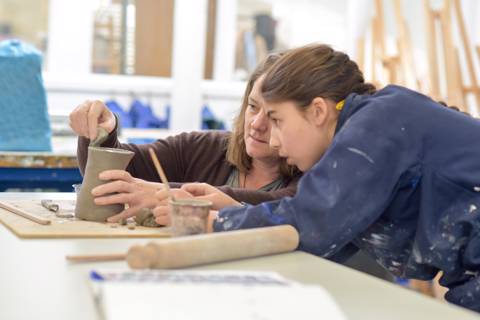
The more clearly we can focus our attention on the wonders and realities of the universe about us, the less taste we shall have for destruction.
— RACHEL CARSON

